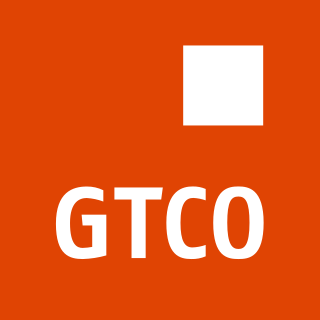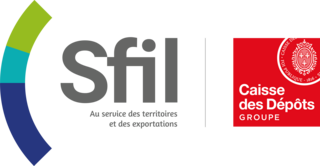
The economy of Slovenia is a developed mixed economy. The country enjoys a high level of prosperity and stability as well as above-average GDP per capita by purchasing power parity at 91% of the EU average in 2023. The nominal GDP in 2023 is 68.108 billion USD, nominal GDP per capita (GDP/pc) in 2023 is USD 32,350. The highest GDP/pc is in central Slovenia, where the capital city Ljubljana is located. It is part of the Western Slovenia statistical region, which has a higher GDP/pc than eastern Slovenia.

The economy of France is a highly developed social market economy with notable state participation in strategic sectors. It is the world's seventh-largest economy by nominal GDP and the ninth-largest economy by PPP, constituting around 4% of world GDP. Due to a volatile currency exchange rate, France's GDP as measured in dollars fluctuates sharply, being smaller in 2024 than in 2008. France has a diversified economy, that is dominated by the service sector, whilst the industrial sector accounted for 19.5% of its GDP and the primary sector accounted for the remaining 1.7%. In 2020, France was the largest Foreign Direct Investment recipient in Europe, and Europe's second largest spender in research and development. It was ranked among the 10 most innovative countries in the world by the 2020 Bloomberg Innovation Index, as well as the 15th most competitive nation globally according to the 2019 Global Competitiveness Report. It was the fifth-largest trading nation in the world. France is also the most visited destination in the world, as well as the European Union's leading agricultural power.

The Export–Import Bank of the United States (EXIM) is the official export credit agency (ECA) of the United States federal government. Operating as a wholly owned federal government corporation, the bank "assists in financing and facilitating U.S. exports of goods and services", particularly when private sector lenders are unable or unwilling to provide financing. Its current chairman and president, Reta Jo Lewis, was confirmed by the Senate on February 9, 2022.

The economy of the European Union is the joint economy of the member states of the European Union (EU). It is the second largest economy in the world in nominal terms, after the United States, and the third largest at purchasing power parity (PPP), after China and the US. The European Union's GDP is estimated to be $19.40 trillion (nominal) in 2024 or $28.04 trillion (PPP), representing around one-sixth of the global economy. Germany has the biggest national GDP of all EU countries, followed by France and Italy. In 2022, the social welfare expenditure of the European Union (EU) as a whole was 27.2% of its GDP.

An export credit agency or investment insurance agency is a private or quasi-governmental institution that acts as an intermediary between national governments and exporters to issue export insurance solutions and guarantees for financing. The financing can take the form of credits or credit insurance and guarantees or both, depending on the mandate the ECA has been given by its government. ECAs can also offer credit or cover on their own account. This does not differ from normal banking activities. Some agencies are government-sponsored, others private, and others a combination of the two.

Dexia N.V./S.A., or the Dexia Group, is a Franco-Belgian financial institution formed in 1996. At its peak in 2010, it had about 35,200 members of staff and a core shareholders' equity of €19.2 billion.

Export Development Canada is Canada's export credit agency and a Crown corporation wholly owned by the Government of Canada. Its mandate is to support and develop trade between Canada and other countries, and help Canada's competitiveness in the international marketplace.

CLSA Ltd. is a capital markets and investment group focused on alternative investment, asset management, corporate finance and capital markets, securities and wealth management for corporate and institutional clients.
Eurobonds or stability bonds were proposed government bonds to be issued in euros jointly by the European Union's 19 eurozone states. The idea was first raised by the Barroso European Commission in 2011 during the 2009–2012 European sovereign debt crisis. Eurobonds would be debt investments whereby an investor loans a certain amount of money, for a certain amount of time, with a certain interest rate, to the eurozone bloc altogether, which then forwards the money to individual governments. The proposal was floated again in 2020 as a potential response to the impacts of the COVID-19 pandemic in Europe, leading such debt issue to be dubbed "corona bonds".

Guaranty Trust Holding Company PLC also known as GTCO PLC is a multinational financial services group, that offers retail and investment banking, pension management, asset management and payments services, headquartered in Victoria Island, Lagos, Nigeria. GTCO Plc was created in July 2021 following the corporate reorganization of Guaranty Trust Bank PLC into a Holding Company.

Following the Iranian Revolution, Iran's banking system was transformed to be run on an Islamic interest-free basis. As of 2010 there were seven large government-run commercial banks. As of March 2014, Iran's banking assets made up over a third of the estimated total of Islamic banking assets globally. They totaled 17,344 trillion rials, or US$523 billion at the free market exchange rate, using central bank data, according to Reuters.
Offsets are compensatory trade agreements, reciprocal trade agreements, between an exporting foreign company, or possibly a government acting as intermediary, and an importing entity. Offset agreements often involve trade in military goods and services and are alternatively called: industrial compensations, industrial cooperation, offsets, industrial and regional benefits, balances, juste retour or equilibrium, to define mechanisms more complex than counter-trade. Counter-trade can also be considered one of the many forms of defense offset, to compensate a purchasing country. The incentive for the exporter results from the conditioning of the core transaction to the acceptance of the offset obligation.
The 2008–2009 Belgian financial crisis is a major financial crisis that hit Belgium from mid-2008 onwards. Two of the country's largest banks – Fortis and Dexia – started to face severe problems, exacerbated by the financial problems hitting other banks around the world. The value of their stocks plunged. The government managed the situation by bailouts, selling off or nationalizing banks, providing bank guarantees and extending the deposit insurance. Eventually Fortis was split into two parts. The Dutch part was nationalized, while the Belgian part was sold to the French bank BNP Paribas. Dexia group was dismantled, Dexia Bank Belgium was nationalized.

The post-2008 Irish banking crisis was when a number of Irish financial institutions faced almost imminent collapse due to insolvency during the Great Recession. In response, the Irish government instigated a €64 billion bank bailout. This then led to a number of unexpected revelations about the business affairs of some banks and business people. Ultimately, added onto the deepening recession in the country, the banks' bailout was the primary reason for the Irish government requiring IMF assistance and a total restructuring of the government occurred as result.

The European debt crisis, often also referred to as the eurozone crisis or the European sovereign debt crisis, was a multi-year debt crisis that took place in the European Union (EU) from 2009 until the mid to late 2010s. Several eurozone member states were unable to repay or refinance their government debt or to bail out over-indebted banks under their national supervision without the assistance of other eurozone countries, the European Central Bank (ECB), or the International Monetary Fund (IMF).

The European Financial Stability Facility (EFSF) is a special purpose vehicle financed by members of the eurozone to address the European sovereign-debt crisis. It was agreed by the Council of the European Union on 9 May 2010, with the objective of preserving financial stability in Europe by providing financial assistance to eurozone states in economic difficulty. The Facility's headquarters are in Luxembourg City, as are those of the European Stability Mechanism. Treasury management services and administrative support are provided to the Facility by the European Investment Bank through a service level contract. Since the establishment of the European Stability Mechanism, the activities of the EFSF are carried out by the ESM.
Davy Group is Ireland's largest stockbroker, wealth manager, asset manager and financial advisor and has offices in Dublin, Belfast, Cork, Galway and London. Davy offers services to private clients, small businesses, corporations and institutional investors.

The European Stability Mechanism (ESM) is an intergovernmental organization located in Luxembourg City, which operates under public international law for all eurozone member states having ratified a special ESM intergovernmental treaty. It was established on 27 September 2012 as a permanent firewall for the eurozone, to safeguard and provide instant access to financial assistance programmes for member states of the eurozone in financial difficulty, with a maximum lending capacity of €500 billion. It has replaced two earlier temporary EU funding programmes: the European Financial Stability Facility (EFSF) and the European Financial Stabilisation Mechanism (EFSM).

China Export & Credit Insurance Corporation, commonly known as Sinosure, is a major Chinese state owned enterprise (SOE) under the administration of Ministry of Finance of the People's Republic of China serving as the provider of export credit insurance, in particular coverage for the export of high-value added goods in China.

SFIL, known until 2015 as Société de Financement Local, is a French public credit institution spun off in February 2013 from the publicly rescued Dexia. SFIL operates in local public sector financing and large export credit contracts refinancing, in commercial partnership with publicly owned bank La Banque Postale (LBP). Since 2020 it has been fully owned by Caisse des Dépôts et Consignations (CDC), France's major public financial institution, but for a single share still held by the French state.















